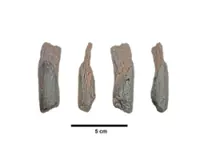IT seemed to be a perfect match: France’s top football player agreeing to star for his hometown club. And for a while it was.
Kylian Mbappe was the star attraction that France’s premier team, Paris St Germain, planned to build around for years to come.
Their owners, an arm of the Qatari government, brought him back to Paris from Monaco in 2017 for about US$200mil (RM877mil), a record deal for a teenager, and at the time the second-highest fee ever in football.
Goals were scored, trophies were secured, Mbappe became one of the most famous athletes in the world, and the bond between player and club was forged. Then came the trouble.
Mbappe, now 26, had since childhood dreamed of playing for Spain’s Real Madrid – football royalty – and his chance came in 2022 with his contract expiring.
Ultimately, he stayed put, but only after a herculean effort that involved cajoling by President Emmanuel Macron of France and what the club claims was the richest contract in European football.

But just as quickly as things fell into place, they started to unravel. Mbappe left Paris after just two seasons, a year earlier than his deal had been widely understood to run.
His move unleashed a bitter and protracted legal dispute, with Mbappe accusing his former club of harassment and demanding them pay him US$61mil (RM267mil) he says he is owed.
Paris St Germain, in turn, have refused to pay, saying Mbappe had a verbal agreement, to cede that money and leave on good terms, with the team’s president and Qatar’s emissary to global football, Nasser al-Khelaifi.
The disagreement provides a rare public glimpse of the global market for football talent, pitting one of the world’s most prominent and influential athletes against a small but powerful and resource-rich Persian Gulf country.
Qatar has emerged over the past decade as one of the biggest players in global sports, using its investments to raise its profile and hosting the 2022 World Cup.
At an unusual news conference recently in Paris, lawyers for Mbappe said they had escalated their case, filing complaints in multiple venues.
They asked a court to partially freeze PSG bank accounts for the money their client believes he is owed and petitioned the French football federation to block the team from playing in the elite Champions League.
“The club is not above the law, and the law is on the side of the player,” said Thomas Clay, one of Mbappe’s lawyers.
PSG dismissed the claims as the “latest parallel universe of fanciful storytelling.”
After becoming the player PSG believed they would build their team around, Mbappe’s resolve to remain in Paris proved short-lived. The lure of Madrid, the power of childhood dreams, proved too big to resist.
Within a year of re-signing with PSG, Mbappe informed the team that he wanted to leave as a free agent, declining to exercise an option to stay for a third season. It was an especially difficult revelation for fans, because when Mbappe had agreed in 2022 to stay with the team, he wore a jersey with 2025 on the back to signify the year the option ran through. Many assumed that meant he was committing to the team for three years.
Mbappe’s departure in 2024 deprived PSG not just of a generational talent but also the opportunity to claw back the 180mil (RM895mil) they had originally paid his former team to bring him to Paris in 2017.

The team tried to work out a deal with Mbappe. They asked him to consider two options, both that would allow him to leave but also keep the team from losing so much money.
Under the first, Mbappe would sign a contract extension that included a guaranteed sale should another club that he wanted to play for – obviously, Real Madrid – pay a nine-figure fee; the second involved Mbappe committing to waive tens of millions of euros in salary and bonus commitments, amounting to 55mil (RM273mil), to leave as a free agent on good terms.
Contracts were drawn up, but nothing was signed, and PSG have described the offering of the two options as a “gentlemen’s agreement” between Mbappe and al-Khelaifi.
The deal quickly devolved into dispute. Mbappe accused PSG of harassment after he declared he wanted to leave, including leaving him home for a pre-season tour. PSG questioned Mbappe’s integrity because the letter he eventually sent to the club declining the option for a third season was dated July 2022, just weeks after he had recommitted to the team.
French football authorities called for mediation to settle the dispute. That hasn’t happened.
In a 10th-floor hotel conference room, the Eiffel Tower looming behind them, four lawyers for Mbappe outlined a raft of cases they have brought in recent days, before sports governing bodies as well as civil and criminal courts, after waiting for PSG to engage for a year.
Mbappe had tired both of waiting for money he felt he was owed and of inaccurate stories about the saga over his contract, his lawyers said. The explanation, Mbappe’s longtime lawyer, Delphine Verheyden, was simple: Mbappe had a contract and PSG had not honoured it.
She and the other lawyers also described how club officials pressured Mbappe – threatening to bench him for a season and damaging his reputation – in their efforts to get him to sign an amendment to his contract that would have helped the club not only save money but also face in the event that he left.
PSG denounced the news conference, accusing Mbappe of rejecting “an amicable solution” and refusing to take the case to a labour court. One of Mbappé’s lawyers countered that such cases typically take years to resolve.
Badly bruised by the saga, PSG have resolved to never repeat their strategy of building their team around a singular figure, no matter how talented or famous.
That new posture – a departure from a system that predated Mbappe to the earliest days of Qatari ownership that began in 2011 – appears to be serving it well.
The club have won praise for performing as the sum of their parts, and are well-placed to achieve their owners’ dreams of winning the Champions League, the biggest prize in European football, after comfortably moving into the semi-finals. — NYT





